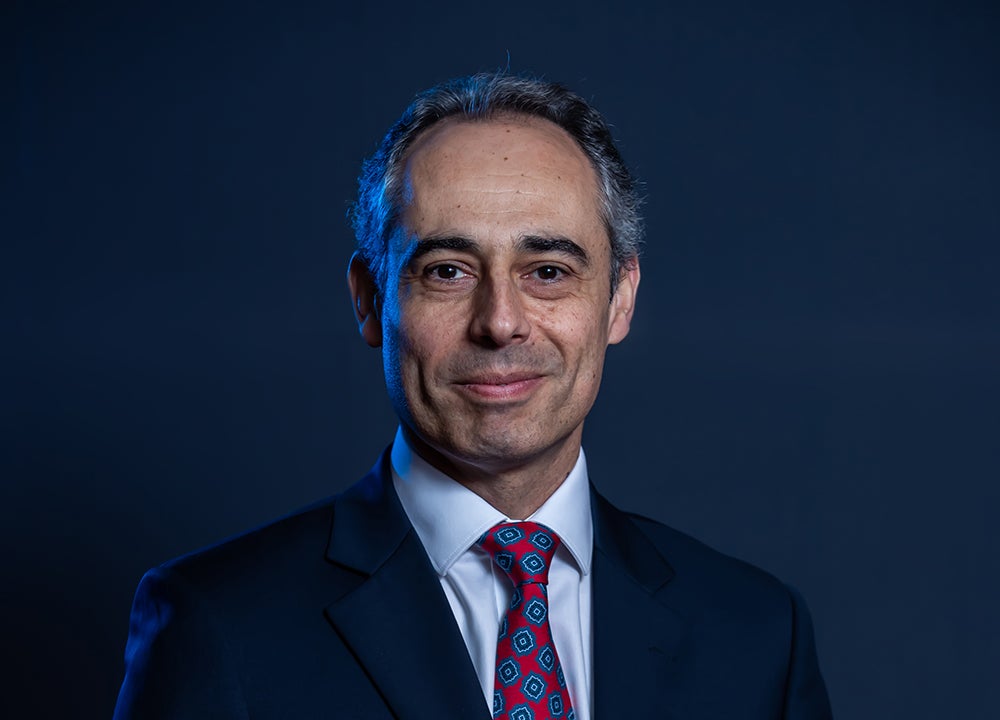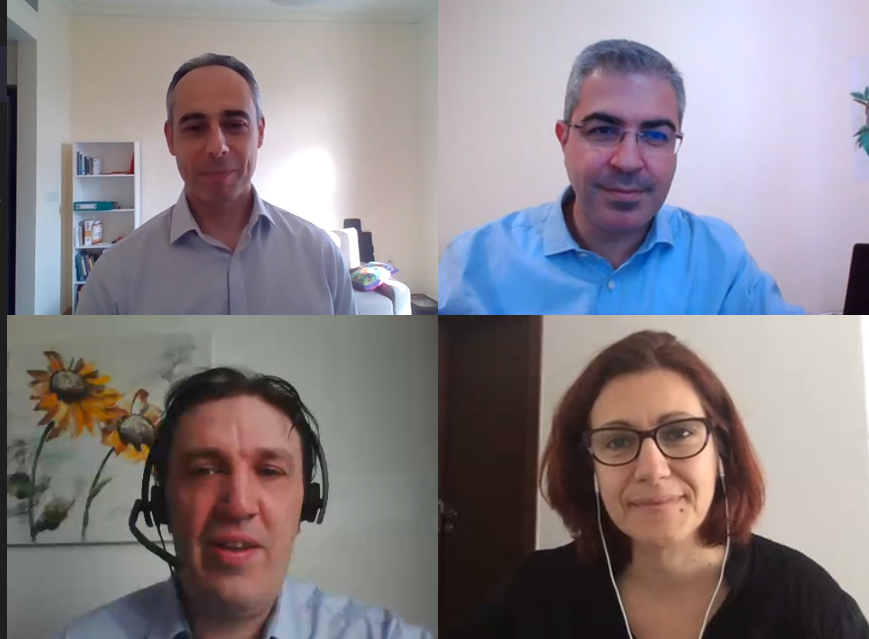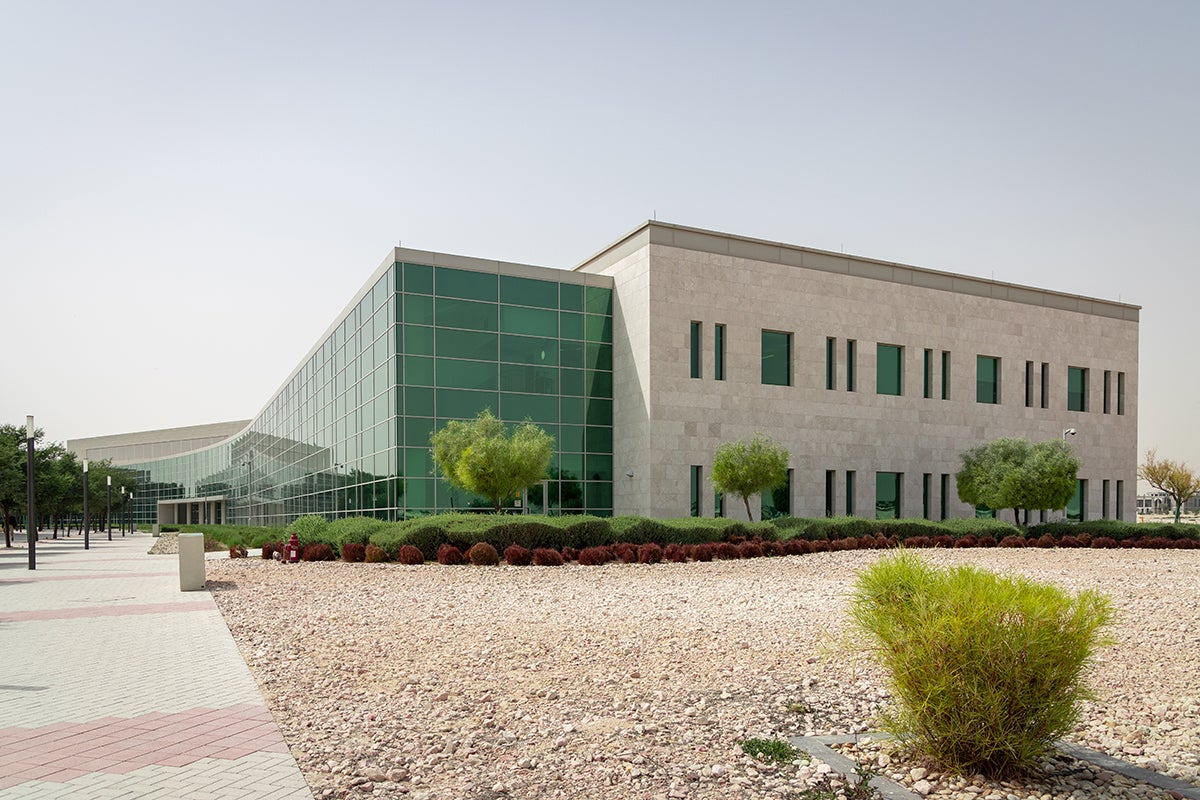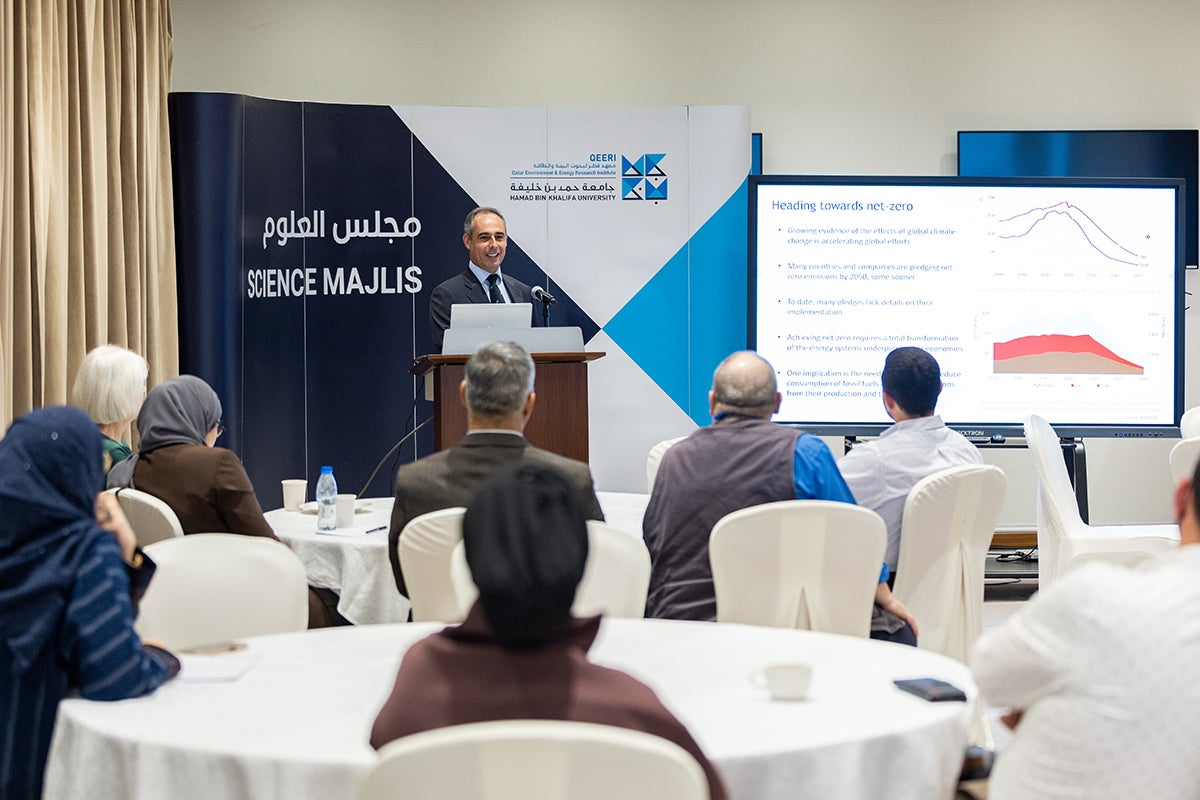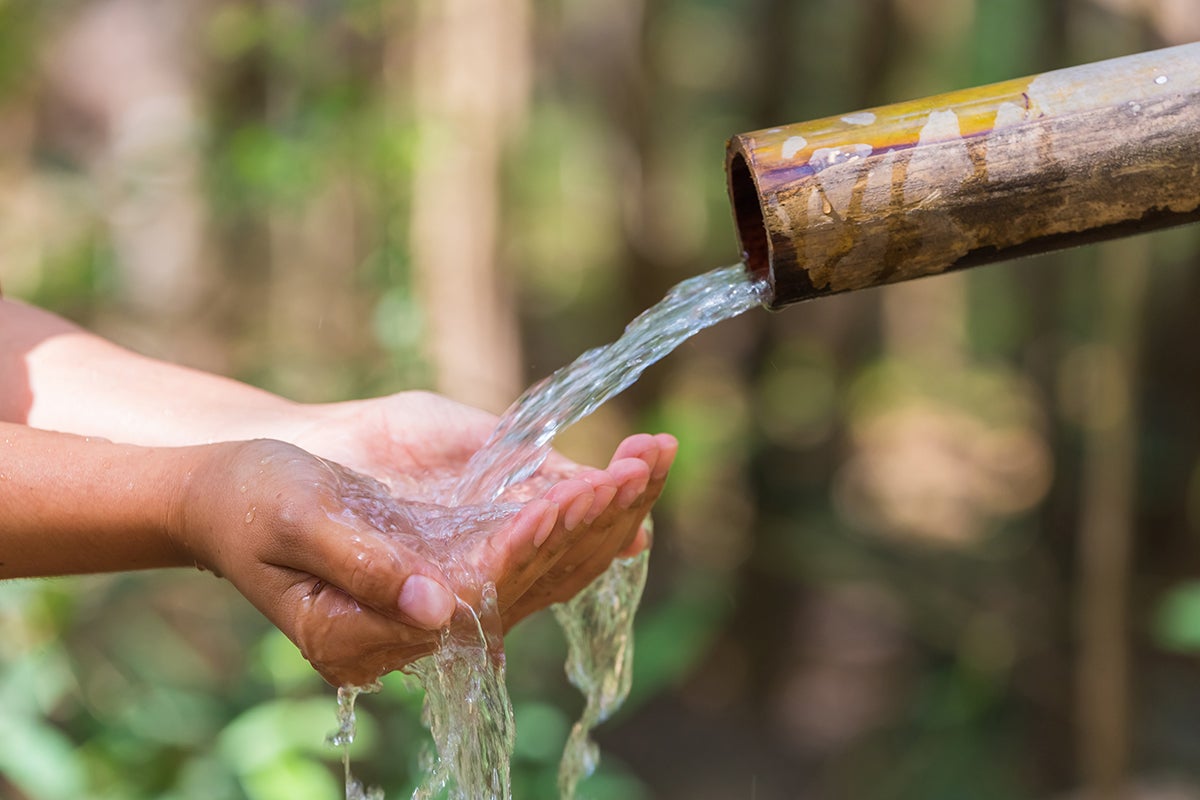
Tackling Corrosion Challenges: A Decade of Qatar Environment and Energy Research Institute
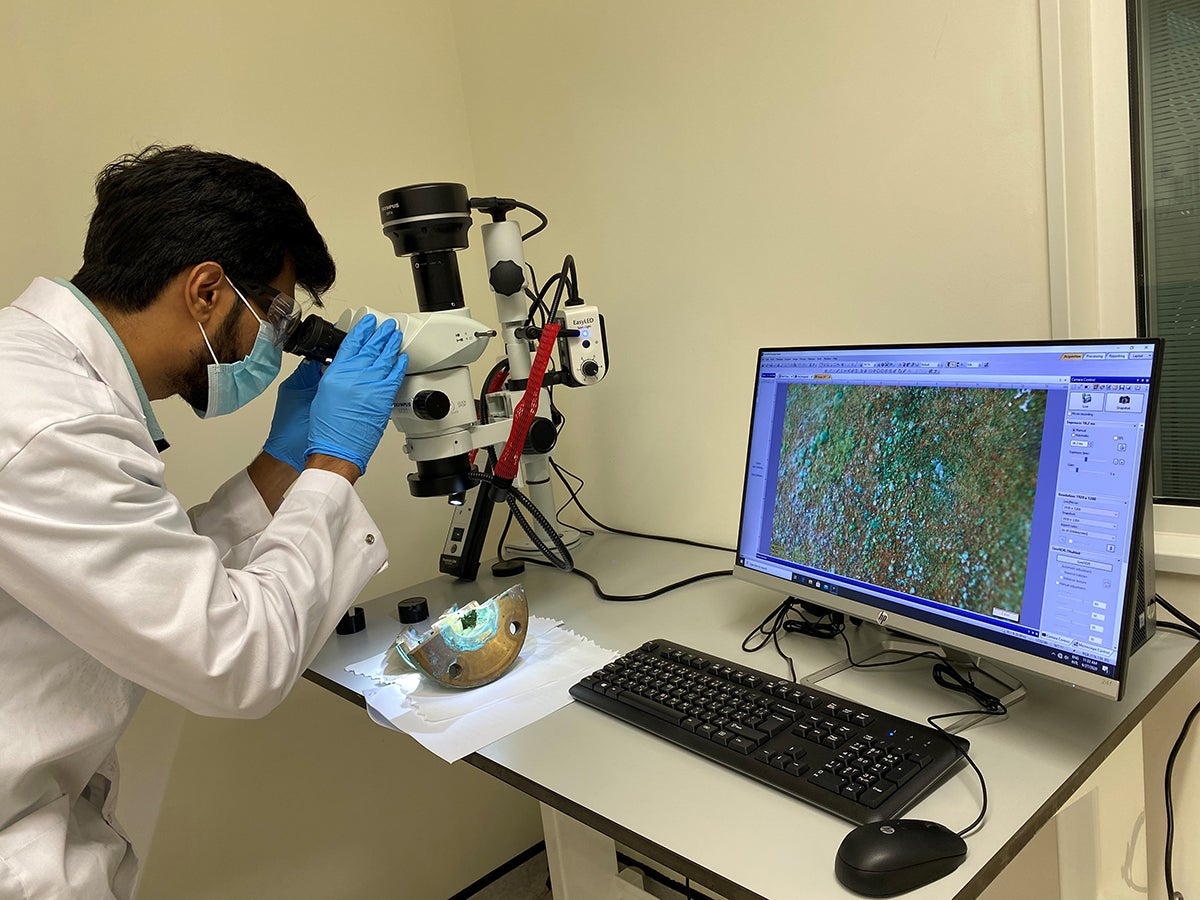
In the decade since it was established, Qatar Environment and Energy Research Institute (QEERI) has fostered innovative research in fields that span water, energy, and environment. QEERI’s scientific expertise, supported by the national, and strategic vision of Hamad Bin Khalifa University and Qatar Foundation, incredible facilities – over 4,000 square meters of indoor lab space, a massive 35,000 square meter outdoor test facility, pilot scale installations at industrial partner facilities, and unique Core Labs that are a national asset - serve its commitment to assist Qatar in achieving its sustainability targets for 2030.
The research and technological solutions developed at QEERI, enhanced through vital partnerships and collaborations, constitute a future roadmap of the responses needed in the unique environment that typifies Qatar and the wider region, with characteristic high temperatures, periodic high humidity levels, dust, and sandstorms.
One of the areas where the impact of these environmental conditions manifests is corrosion. Common corrosion issues are estimated to cost Qatar $7.8 billion annually, serving as a challenge for the country’s key industries, and for the sustainability of its urban and industrial infrastructure. Technological and scientific innovation is essential, and QEERI is taking the lead.
The Corrosion Center is one of the newest at QEERI, and aims to be Qatar's first national-level center that focuses on solving the corrosion challenges facing the country. Enhancing sustainability by tackling corrosion is at the core of research and other efforts. It is a goal that ties into World Environmental Health Day 2021 on September 26. This year’s theme of “Prioritizing environmental health for healthier communities in global recovery” aligns with QEERI’s efforts to help reduce the impact of corrosion for the benefit of the environment, and to safeguard the health of the population against the effects of potential degradation in everyday life.
QEERI’s approach to tackling corrosion
“The Center’s approach is to turn every corrosion challenge into a research, development and innovation initiative, with sustainability as a fundamental basis. In our work, scientific knowledge combines with industrial experience so that QEERI not only provides customized, market-driven solutions for the challenges facing the oil and gas industry, construction, transportation, defense, and others but also generates more knowledge, science, and technology. That is the basis of the proactive approach to the challenge of corrosion that will help reduce its impact for the benefit of the environment,” says Dr. Marc Vermeersch, Executive Director at QEERI.
The Corrosion Center is working toward the development of national standards for materials selection; the formulation of corrosion management plans; performing industrial-defined and research-driven studies, and providing training and certification for corrosion and materials engineers.
In addition to its research activities, QEERI experts provide technical consultations and services, including fitness-to-service evaluation, corrosion risk assessment, root-cause-failure analysis, integrity management planning, and advice on material selection to Qatar’s industry.
Strengthening the industry-academia relationship
QEERI’s Corrosion Center is a major contributor of solutions to reduce the financial and environmental impacts on communities, and the most severe challenges facing the oil and gas industry across the Middle East. QEERI’s state-of-the-art corrosion testing facility simulates oil and gas field conditions. The unique capabilities enable the testing of different types of material under diverse operating conditions, taking into account operating temperatures and pressures, sudden shutdown, and other test programs.
QEERI’s achievements firmly cement Qatar’s position on the global map as a key center for research, development and innovation in its core areas. Researchers at QEERI’s Corrosion Center are working with researchers from Curtin University’s Corrosion Center to study four recurring corrosion issues facing the industry in Qatar and Australia: acid gas corrosion, coating degradation, corrosion under insulation (CUI), and microbiologically-influenced corrosion (MIC). Projects under the ‘QEERI-Curtin University Alliance in Corrosion’ include field studies in both countries, accelerated laboratory studies, and developing specialized human capacity in corrosion engineering through four PhD scholarships.
The calibre of equipment and skills ensure that the Corrosion Center makes major contributions toward solutions for several key sectors in Qatar. Highlighting QEERI’s distinctive capabilities, the Corrosion Center is focusing on using novel artificial intelligence and machine learning tools combined with different corrosion sensors to develop autonomous corrosion management tools.
The Center also has a program for the sustainability of urban and industrial infrastructures, where the corrosion of reinforced concrete structures and pipeline integrity are studied. One of QEERI’s major projects that will benefit the construction industry is developing a corrosion atlas for reinforced concrete structures to detect and monitor corrosion.
In addition, a new program for the selection of suitable material for the hydrogen energy-vector has been established, with a focus on developing knowledge-based models for predicting the lifetime and performance of materials for hydrogen storage and transportation through multiscale testing and characterization.
Looking ahead
QEERI is at the very cutting edge of global action to combat corrosion. The institute occupies one of Qatar’s five seats on the Standards Committee of the International Association for Oil and Gas Producers (IOGP). In addition, QEERI Corrosion Center represents Qatar in the GCC Standardization Organization and the International Organization for Standardization (ISO).
QEERI also focuses on developing national human capacity in the area of corrosion and materials engineering. In establishing a knowledge base and qualifying future generations of Qatari scientists and engineers, QEERI scientists provide mentorship to students who are pursuing their masters and PhD programs. Student outreach activities such as the Summer Undergraduate Research Program and Young Innovator Awards Competition educate and empower the younger generations to develop an interest in science and research.
Looking toward the next decade, Dr. Hanan Farhat, Senior Research Director at QEERI Corrosion Center, says: “The impact of corrosion is felt in the economy, on natural resources and safety. Our mission is to help Qatar move towards a more sustainable approach in energy, water and environment by bringing together our scientists, researchers and engineers along with our unique capabilities, including our labs and other facilities. As part of Qatar Foundation, and Hamad Bin Khalifa University, our goals and objectives are tied in with the Qatar National Vision 2030, and our goal is to enable the country to meet its grand challenges in energy, water security, and environment.”
To find out more about QEERI, please visit qeeri.hbku.edu.qa.
Related News
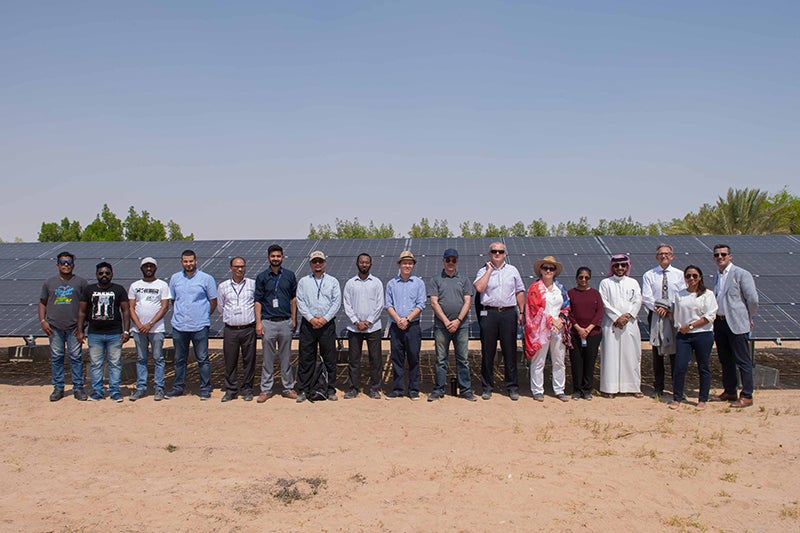
HBKU’s QEERI Launches Pilot Project to Supply Sustainable Energy to Farms in Qatar
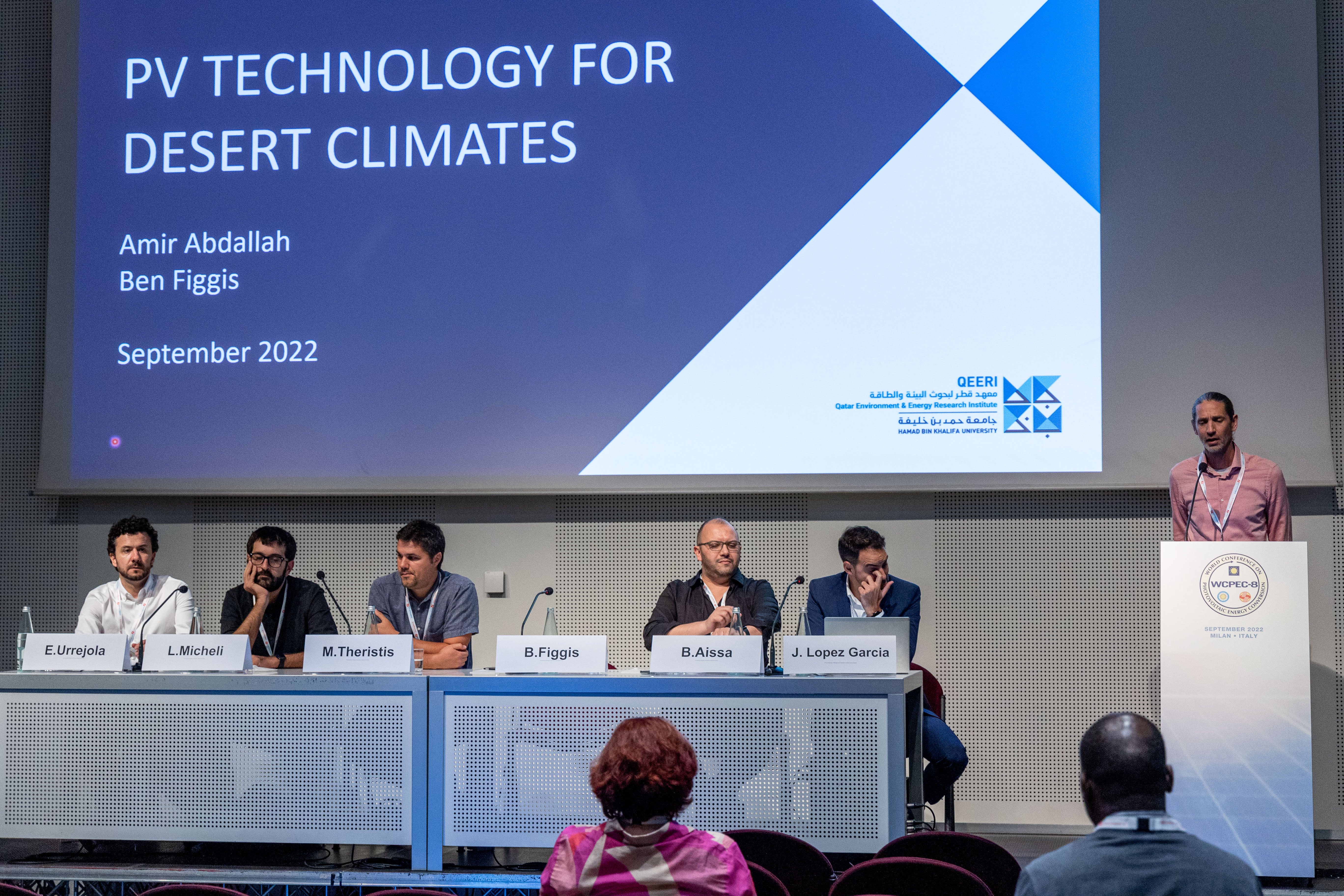
QEERI Presents Solar Energy Innovation at International Photovoltaic Conference
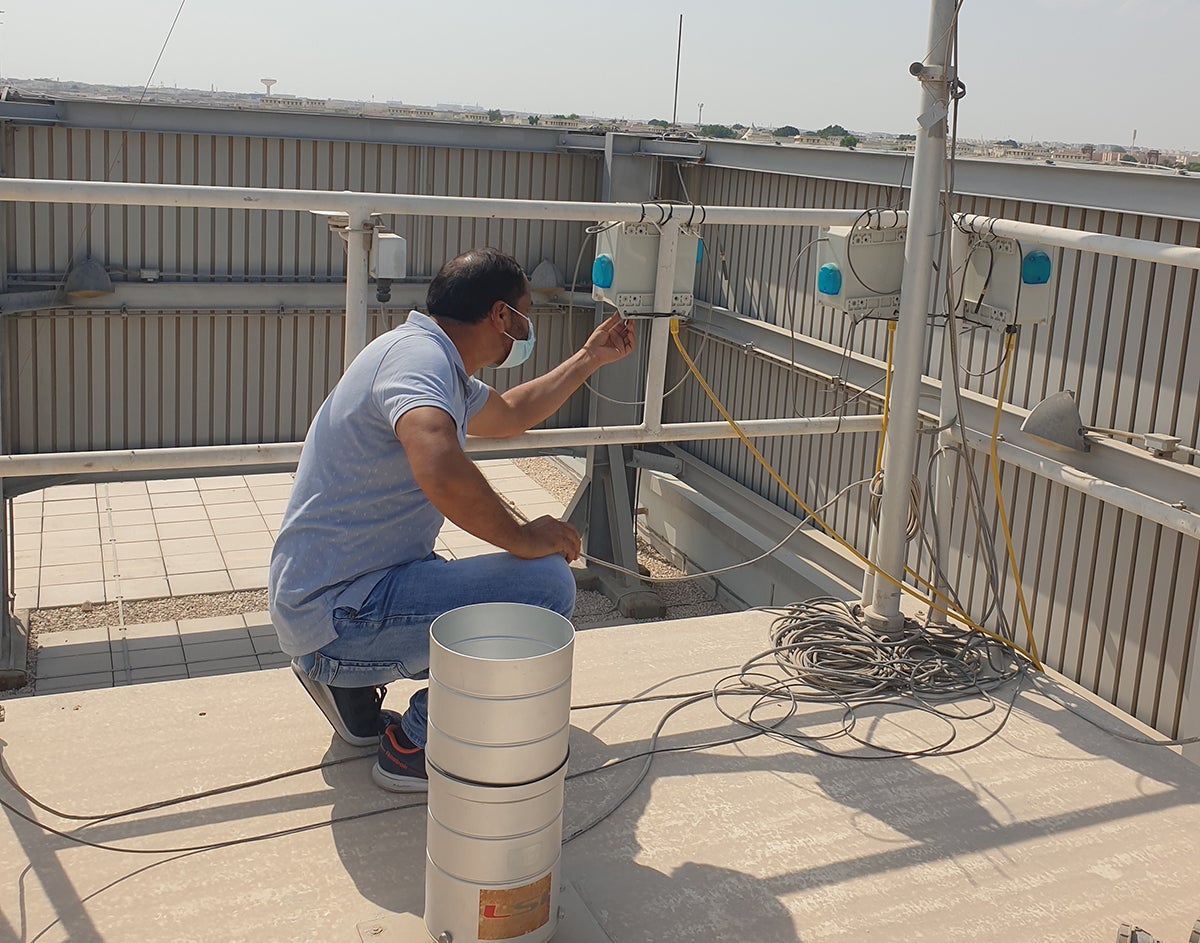
Scientific Research Raises Level of Urban Air Quality Management: A Decade of Qatar Environment and Energy Research Institute
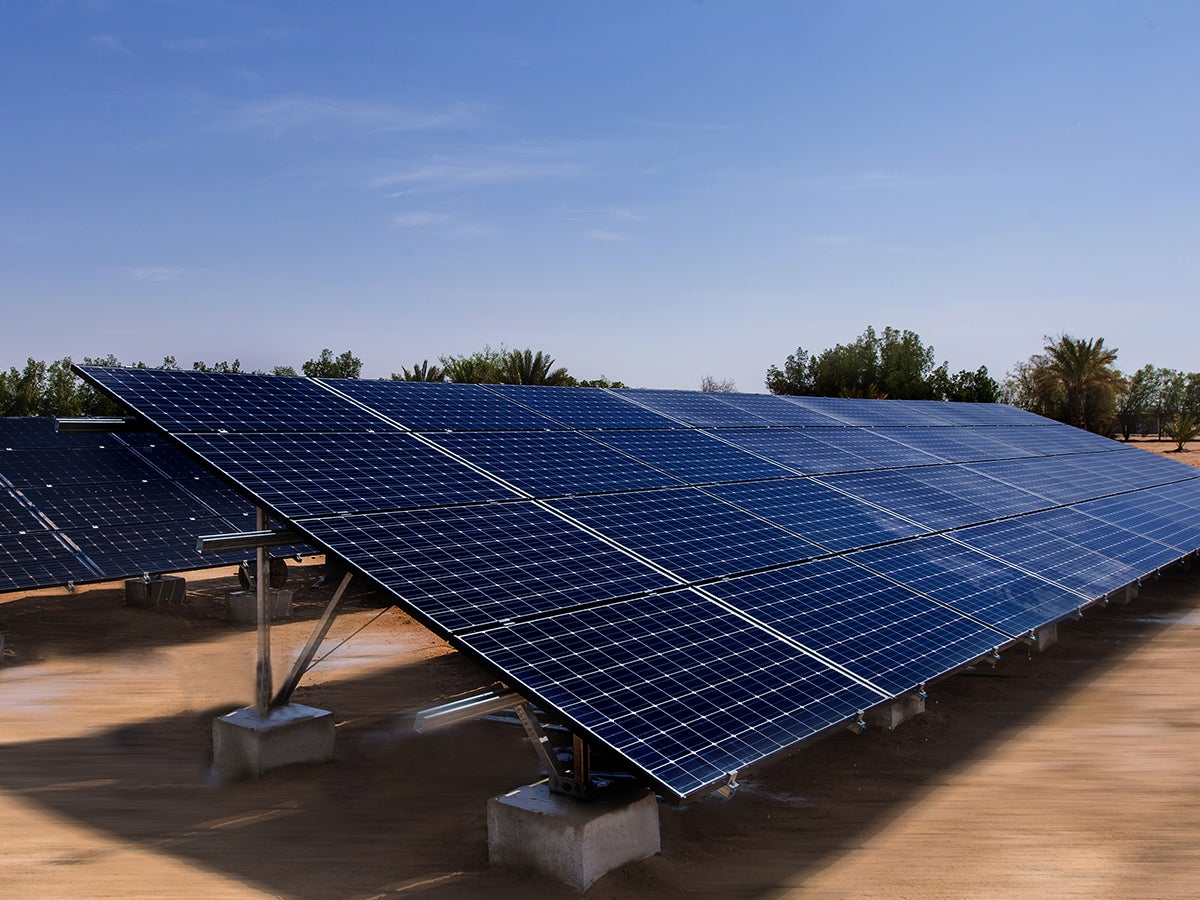
Helping the Nation Harness its Sustainable Energy Resources: A Decade of Qatar Environment and Energy Research Institute
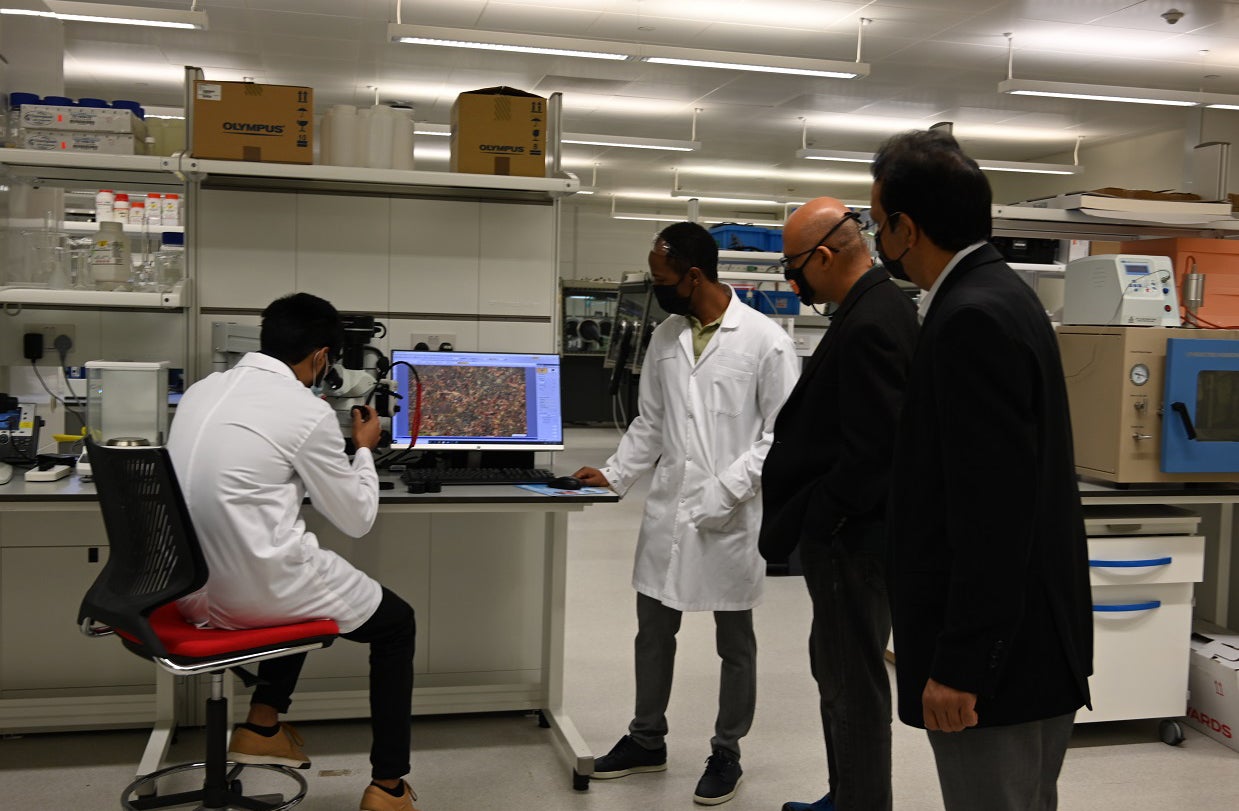
Qatar Environment and Energy Research Institute Achieves ISO Accreditation for Calibration and Testing Laboratories
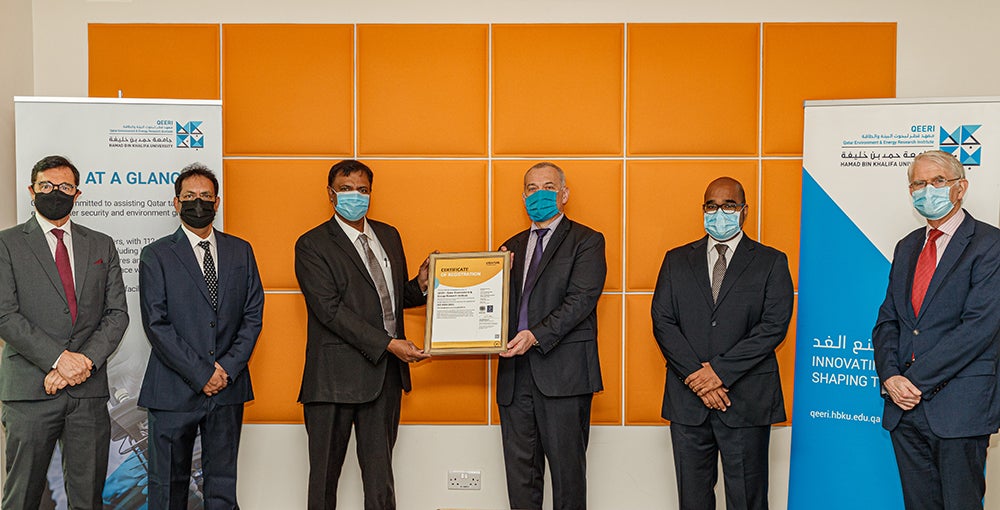
HBKU’s Qatar Environment and Energy Research Institute Awarded ISO Certification for its Integrated Management System

HBKU’s QEERI Launches Pilot Project to Supply Sustainable Energy to Farms in Qatar

QEERI Presents Solar Energy Innovation at International Photovoltaic Conference

Scientific Research Raises Level of Urban Air Quality Management: A Decade of Qatar Environment and Energy Research Institute

Helping the Nation Harness its Sustainable Energy Resources: A Decade of Qatar Environment and Energy Research Institute

Qatar Environment and Energy Research Institute Achieves ISO Accreditation for Calibration and Testing Laboratories

HBKU’s Qatar Environment and Energy Research Institute Awarded ISO Certification for its Integrated Management System

HBKU’s QEERI Launches Pilot Project to Supply Sustainable Energy to Farms in Qatar

QEERI Presents Solar Energy Innovation at International Photovoltaic Conference

Scientific Research Raises Level of Urban Air Quality Management: A Decade of Qatar Environment and Energy Research Institute

Helping the Nation Harness its Sustainable Energy Resources: A Decade of Qatar Environment and Energy Research Institute

Qatar Environment and Energy Research Institute Achieves ISO Accreditation for Calibration and Testing Laboratories

HBKU’s Qatar Environment and Energy Research Institute Awarded ISO Certification for its Integrated Management System

HBKU’s QEERI Launches Pilot Project to Supply Sustainable Energy to Farms in Qatar

QEERI Presents Solar Energy Innovation at International Photovoltaic Conference

Scientific Research Raises Level of Urban Air Quality Management: A Decade of Qatar Environment and Energy Research Institute

Helping the Nation Harness its Sustainable Energy Resources: A Decade of Qatar Environment and Energy Research Institute

Qatar Environment and Energy Research Institute Achieves ISO Accreditation for Calibration and Testing Laboratories

HBKU’s Qatar Environment and Energy Research Institute Awarded ISO Certification for its Integrated Management System

HBKU’s QEERI Launches Pilot Project to Supply Sustainable Energy to Farms in Qatar

QEERI Presents Solar Energy Innovation at International Photovoltaic Conference

Scientific Research Raises Level of Urban Air Quality Management: A Decade of Qatar Environment and Energy Research Institute

Helping the Nation Harness its Sustainable Energy Resources: A Decade of Qatar Environment and Energy Research Institute

Qatar Environment and Energy Research Institute Achieves ISO Accreditation for Calibration and Testing Laboratories

HBKU’s Qatar Environment and Energy Research Institute Awarded ISO Certification for its Integrated Management System

HBKU’s QEERI Launches Pilot Project to Supply Sustainable Energy to Farms in Qatar

QEERI Presents Solar Energy Innovation at International Photovoltaic Conference

Scientific Research Raises Level of Urban Air Quality Management: A Decade of Qatar Environment and Energy Research Institute

Helping the Nation Harness its Sustainable Energy Resources: A Decade of Qatar Environment and Energy Research Institute

Qatar Environment and Energy Research Institute Achieves ISO Accreditation for Calibration and Testing Laboratories

HBKU’s Qatar Environment and Energy Research Institute Awarded ISO Certification for its Integrated Management System

HBKU’s QEERI Launches Pilot Project to Supply Sustainable Energy to Farms in Qatar

QEERI Presents Solar Energy Innovation at International Photovoltaic Conference

Scientific Research Raises Level of Urban Air Quality Management: A Decade of Qatar Environment and Energy Research Institute

Helping the Nation Harness its Sustainable Energy Resources: A Decade of Qatar Environment and Energy Research Institute

Qatar Environment and Energy Research Institute Achieves ISO Accreditation for Calibration and Testing Laboratories

HBKU’s Qatar Environment and Energy Research Institute Awarded ISO Certification for its Integrated Management System

HBKU’s QEERI Launches Pilot Project to Supply Sustainable Energy to Farms in Qatar

QEERI Presents Solar Energy Innovation at International Photovoltaic Conference

Scientific Research Raises Level of Urban Air Quality Management: A Decade of Qatar Environment and Energy Research Institute

Helping the Nation Harness its Sustainable Energy Resources: A Decade of Qatar Environment and Energy Research Institute

Qatar Environment and Energy Research Institute Achieves ISO Accreditation for Calibration and Testing Laboratories

HBKU’s Qatar Environment and Energy Research Institute Awarded ISO Certification for its Integrated Management System

HBKU’s QEERI Launches Pilot Project to Supply Sustainable Energy to Farms in Qatar

QEERI Presents Solar Energy Innovation at International Photovoltaic Conference

Scientific Research Raises Level of Urban Air Quality Management: A Decade of Qatar Environment and Energy Research Institute

Helping the Nation Harness its Sustainable Energy Resources: A Decade of Qatar Environment and Energy Research Institute

Qatar Environment and Energy Research Institute Achieves ISO Accreditation for Calibration and Testing Laboratories

HBKU’s Qatar Environment and Energy Research Institute Awarded ISO Certification for its Integrated Management System

HBKU’s QEERI Launches Pilot Project to Supply Sustainable Energy to Farms in Qatar

QEERI Presents Solar Energy Innovation at International Photovoltaic Conference

Scientific Research Raises Level of Urban Air Quality Management: A Decade of Qatar Environment and Energy Research Institute

Helping the Nation Harness its Sustainable Energy Resources: A Decade of Qatar Environment and Energy Research Institute

Qatar Environment and Energy Research Institute Achieves ISO Accreditation for Calibration and Testing Laboratories

HBKU’s Qatar Environment and Energy Research Institute Awarded ISO Certification for its Integrated Management System

HBKU’s QEERI Launches Pilot Project to Supply Sustainable Energy to Farms in Qatar

QEERI Presents Solar Energy Innovation at International Photovoltaic Conference

Scientific Research Raises Level of Urban Air Quality Management: A Decade of Qatar Environment and Energy Research Institute

Helping the Nation Harness its Sustainable Energy Resources: A Decade of Qatar Environment and Energy Research Institute

Qatar Environment and Energy Research Institute Achieves ISO Accreditation for Calibration and Testing Laboratories

HBKU’s Qatar Environment and Energy Research Institute Awarded ISO Certification for its Integrated Management System

HBKU’s QEERI Launches Pilot Project to Supply Sustainable Energy to Farms in Qatar

QEERI Presents Solar Energy Innovation at International Photovoltaic Conference

Scientific Research Raises Level of Urban Air Quality Management: A Decade of Qatar Environment and Energy Research Institute

Helping the Nation Harness its Sustainable Energy Resources: A Decade of Qatar Environment and Energy Research Institute

Qatar Environment and Energy Research Institute Achieves ISO Accreditation for Calibration and Testing Laboratories

HBKU’s Qatar Environment and Energy Research Institute Awarded ISO Certification for its Integrated Management System

HBKU’s QEERI Launches Pilot Project to Supply Sustainable Energy to Farms in Qatar

QEERI Presents Solar Energy Innovation at International Photovoltaic Conference

Scientific Research Raises Level of Urban Air Quality Management: A Decade of Qatar Environment and Energy Research Institute

Helping the Nation Harness its Sustainable Energy Resources: A Decade of Qatar Environment and Energy Research Institute

Qatar Environment and Energy Research Institute Achieves ISO Accreditation for Calibration and Testing Laboratories

HBKU’s Qatar Environment and Energy Research Institute Awarded ISO Certification for its Integrated Management System

HBKU’s QEERI Launches Pilot Project to Supply Sustainable Energy to Farms in Qatar

QEERI Presents Solar Energy Innovation at International Photovoltaic Conference

Scientific Research Raises Level of Urban Air Quality Management: A Decade of Qatar Environment and Energy Research Institute

Helping the Nation Harness its Sustainable Energy Resources: A Decade of Qatar Environment and Energy Research Institute

Qatar Environment and Energy Research Institute Achieves ISO Accreditation for Calibration and Testing Laboratories

HBKU’s Qatar Environment and Energy Research Institute Awarded ISO Certification for its Integrated Management System

HBKU’s QEERI Launches Pilot Project to Supply Sustainable Energy to Farms in Qatar

QEERI Presents Solar Energy Innovation at International Photovoltaic Conference

Scientific Research Raises Level of Urban Air Quality Management: A Decade of Qatar Environment and Energy Research Institute

Helping the Nation Harness its Sustainable Energy Resources: A Decade of Qatar Environment and Energy Research Institute

Qatar Environment and Energy Research Institute Achieves ISO Accreditation for Calibration and Testing Laboratories

HBKU’s Qatar Environment and Energy Research Institute Awarded ISO Certification for its Integrated Management System

HBKU’s QEERI Launches Pilot Project to Supply Sustainable Energy to Farms in Qatar

QEERI Presents Solar Energy Innovation at International Photovoltaic Conference

Scientific Research Raises Level of Urban Air Quality Management: A Decade of Qatar Environment and Energy Research Institute

Helping the Nation Harness its Sustainable Energy Resources: A Decade of Qatar Environment and Energy Research Institute

Qatar Environment and Energy Research Institute Achieves ISO Accreditation for Calibration and Testing Laboratories

HBKU’s Qatar Environment and Energy Research Institute Awarded ISO Certification for its Integrated Management System

HBKU’s QEERI Launches Pilot Project to Supply Sustainable Energy to Farms in Qatar

QEERI Presents Solar Energy Innovation at International Photovoltaic Conference

Scientific Research Raises Level of Urban Air Quality Management: A Decade of Qatar Environment and Energy Research Institute

Helping the Nation Harness its Sustainable Energy Resources: A Decade of Qatar Environment and Energy Research Institute

Qatar Environment and Energy Research Institute Achieves ISO Accreditation for Calibration and Testing Laboratories

HBKU’s Qatar Environment and Energy Research Institute Awarded ISO Certification for its Integrated Management System

HBKU’s QEERI Launches Pilot Project to Supply Sustainable Energy to Farms in Qatar

QEERI Presents Solar Energy Innovation at International Photovoltaic Conference

Scientific Research Raises Level of Urban Air Quality Management: A Decade of Qatar Environment and Energy Research Institute

Helping the Nation Harness its Sustainable Energy Resources: A Decade of Qatar Environment and Energy Research Institute

Qatar Environment and Energy Research Institute Achieves ISO Accreditation for Calibration and Testing Laboratories

HBKU’s Qatar Environment and Energy Research Institute Awarded ISO Certification for its Integrated Management System

HBKU’s QEERI Launches Pilot Project to Supply Sustainable Energy to Farms in Qatar

QEERI Presents Solar Energy Innovation at International Photovoltaic Conference

Scientific Research Raises Level of Urban Air Quality Management: A Decade of Qatar Environment and Energy Research Institute

Helping the Nation Harness its Sustainable Energy Resources: A Decade of Qatar Environment and Energy Research Institute

Qatar Environment and Energy Research Institute Achieves ISO Accreditation for Calibration and Testing Laboratories

HBKU’s Qatar Environment and Energy Research Institute Awarded ISO Certification for its Integrated Management System

HBKU’s QEERI Launches Pilot Project to Supply Sustainable Energy to Farms in Qatar

QEERI Presents Solar Energy Innovation at International Photovoltaic Conference

Scientific Research Raises Level of Urban Air Quality Management: A Decade of Qatar Environment and Energy Research Institute

Helping the Nation Harness its Sustainable Energy Resources: A Decade of Qatar Environment and Energy Research Institute

Qatar Environment and Energy Research Institute Achieves ISO Accreditation for Calibration and Testing Laboratories

HBKU’s Qatar Environment and Energy Research Institute Awarded ISO Certification for its Integrated Management System

HBKU’s QEERI Launches Pilot Project to Supply Sustainable Energy to Farms in Qatar

QEERI Presents Solar Energy Innovation at International Photovoltaic Conference

Scientific Research Raises Level of Urban Air Quality Management: A Decade of Qatar Environment and Energy Research Institute

Helping the Nation Harness its Sustainable Energy Resources: A Decade of Qatar Environment and Energy Research Institute

Qatar Environment and Energy Research Institute Achieves ISO Accreditation for Calibration and Testing Laboratories

HBKU’s Qatar Environment and Energy Research Institute Awarded ISO Certification for its Integrated Management System

HBKU’s QEERI Launches Pilot Project to Supply Sustainable Energy to Farms in Qatar

QEERI Presents Solar Energy Innovation at International Photovoltaic Conference

Scientific Research Raises Level of Urban Air Quality Management: A Decade of Qatar Environment and Energy Research Institute

Helping the Nation Harness its Sustainable Energy Resources: A Decade of Qatar Environment and Energy Research Institute

Qatar Environment and Energy Research Institute Achieves ISO Accreditation for Calibration and Testing Laboratories

HBKU’s Qatar Environment and Energy Research Institute Awarded ISO Certification for its Integrated Management System

HBKU’s QEERI Launches Pilot Project to Supply Sustainable Energy to Farms in Qatar

QEERI Presents Solar Energy Innovation at International Photovoltaic Conference

Scientific Research Raises Level of Urban Air Quality Management: A Decade of Qatar Environment and Energy Research Institute

Helping the Nation Harness its Sustainable Energy Resources: A Decade of Qatar Environment and Energy Research Institute

Qatar Environment and Energy Research Institute Achieves ISO Accreditation for Calibration and Testing Laboratories

HBKU’s Qatar Environment and Energy Research Institute Awarded ISO Certification for its Integrated Management System

HBKU’s QEERI Launches Pilot Project to Supply Sustainable Energy to Farms in Qatar

QEERI Presents Solar Energy Innovation at International Photovoltaic Conference

Scientific Research Raises Level of Urban Air Quality Management: A Decade of Qatar Environment and Energy Research Institute

Helping the Nation Harness its Sustainable Energy Resources: A Decade of Qatar Environment and Energy Research Institute

Qatar Environment and Energy Research Institute Achieves ISO Accreditation for Calibration and Testing Laboratories

HBKU’s Qatar Environment and Energy Research Institute Awarded ISO Certification for its Integrated Management System






